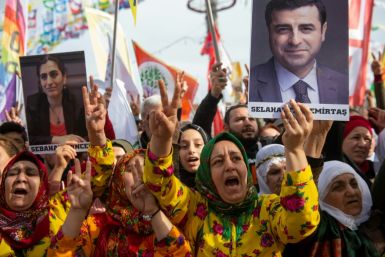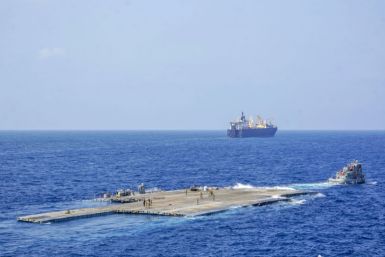Mandela Memorial: NZ Delegation Criticised for Lack of Prominent Apartheid Protesters
New Zealand had originally five members in its delegation ready to attend Nelson Mandela's memorial service in South Africa and join other world leaders, celebrities and royals in attendance.
However, New Zealand Prime Minister John Key said he was only allowed to bring one member of his delegation inside the World Cup soccer stadium in Johannesburg. Mr Key selected Labour and opposition leader David Cunliffe. Mr Cunliffe later on gave up his seat so Minister of Maori Affairs Pita Sharples can attend the service.
The five members of New Zealand's delegation included former Prime Minister Jim Bolger and former Foreign Minister and Secretary General of the Commonwealth Sir Don McKinnon.
Nearly a hundred world leaders and thousands of South Africans have gathered in FNB stadium to pay tribute their respects to anti-apartheid hero Nelson Mandela. The soccer stadium, which can hold 95,000 people, was where Mr Mandela made his last public appearance during the closing ceremonies of the World Cup 2010.
Anti-apartheid protester and Mana leader Hone Harawira arrived at South Africa ahead of Nelson Mandela's memorial service. He was not part of New Zealand's delegation. Parliament approved his trip just minutes before his departure.
Mr Harawira was one of the hundreds of thousands of protesters who were against apartheid in the Springbok Tour in 1981.
No prominent figure from NZ's anti-apartheid movement
Prime Minister John Key was criticised for not having a prominent figure in his official delegation to Nelson Mandela's memorial service. Critics said he may have wasted a chance to reach out to some sectors of the voting public whom he hasn't won over yet.
Mr Mandela's death has revealed the close similarity of the events in the 1981 Springbok Tour. Many of the protesters during that time in New Zealand may feel that former Prime Minister Jim Bolger should speak for those who were anti-apartheid.
According to Mr Key, the members of his delegation were assigned following the advice of the Ministry of Foreign Affairs.
The members of New Zealand's controversial delegation were initially declined to enter the event. Upon arrival at the stadium, Prime Minister Key was informed that only he and another delegate can enter. Inspired by Nelson Mandela's legacy of reconciliation and solidarity, Mr Key chose opposition leader Mr Cunliffe. In the end, all five members of the Kiwi delegation were allowed to enter.
The highlight of the memorial service was undoubtedly U.S. President Barack Obama's speech. Mr Obama had arrived at FNB Stadium after an hour the memorial service began. The crowd cheered and gave him a prolonged applause when the big screen showed his image.






